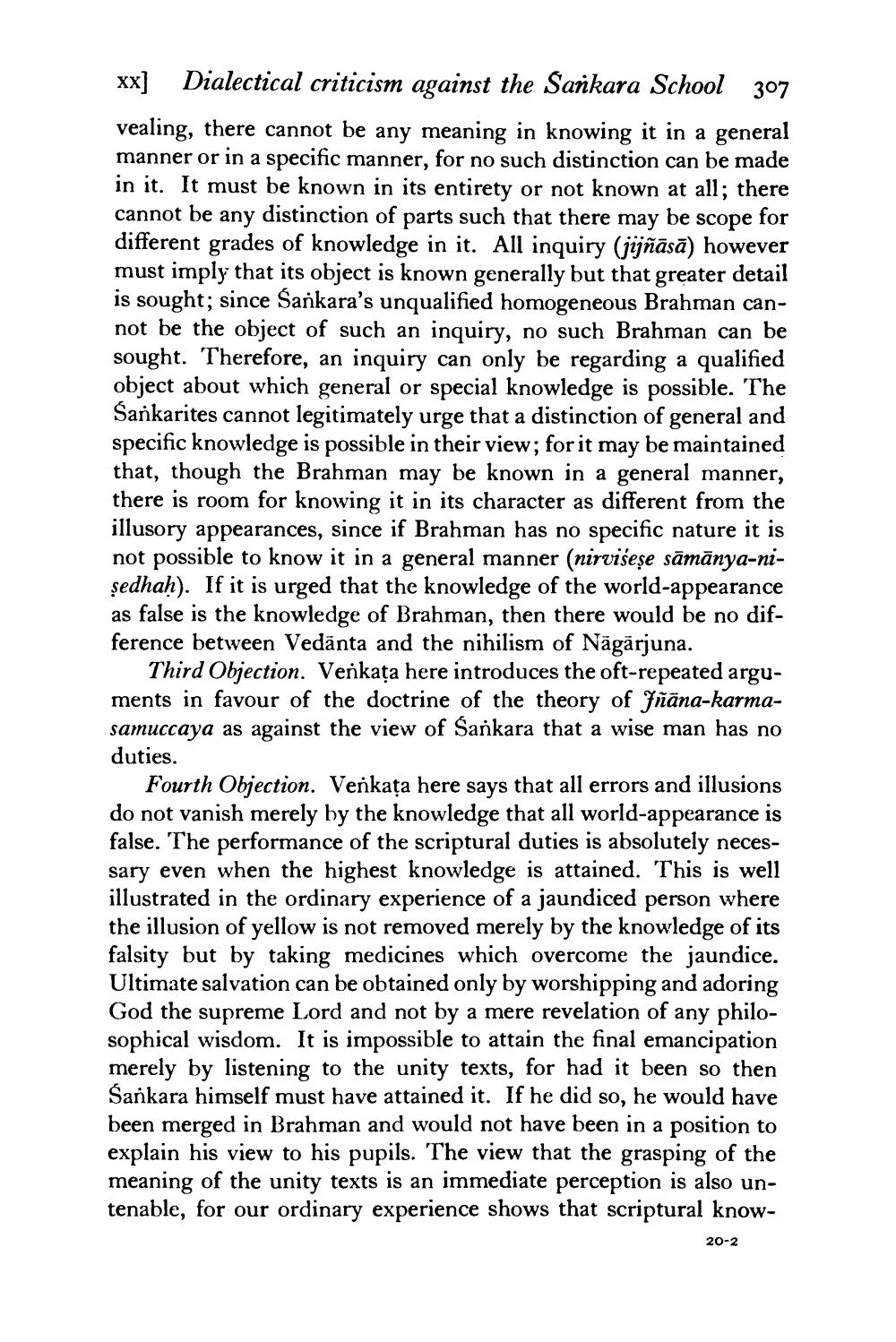________________
xx] Dialectical criticism against the Sankara School 307
vealing, there cannot be any meaning in knowing it in a general manner or in a specific manner, for no such distinction can be made in it. It must be known in its entirety or not known at all; there cannot be any distinction of parts such that there may be scope for different grades of knowledge in it. All inquiry (jijñāsā) however must imply that its object is known generally but that greater detail is sought; since Sankara's unqualified homogeneous Brahman cannot be the object of such an inquiry, no such Brahman can be sought. Therefore, an inquiry can only be regarding a qualified object about which general or special knowledge is possible. The Sankarites cannot legitimately urge that a distinction of general and specific knowledge is possible in their view; for it may be maintained that, though the Brahman may be known in a general manner, there is room for knowing it in its character as different from the illusory appearances, since if Brahman has no specific nature it is not possible to know it in a general manner (nirviseṣe sāmānya-nişedhaḥ). If it is urged that the knowledge of the world-appearance as false is the knowledge of Brahman, then there would be no difference between Vedanta and the nihilism of Nagarjuna.
Third Objection. Venkata here introduces the oft-repeated arguments in favour of the doctrine of the theory of Jñana-karmasamuccaya as against the view of Sankara that a wise man has no duties.
Fourth Objection. Venkata here says that all errors and illusions do not vanish merely by the knowledge that all world-appearance is false. The performance of the scriptural duties is absolutely necessary even when the highest knowledge is attained. This is well illustrated in the ordinary experience of a jaundiced person where the illusion of yellow is not removed merely by the knowledge of its falsity but by taking medicines which overcome the jaundice. Ultimate salvation can be obtained only by worshipping and adoring God the supreme Lord and not by a mere revelation of any philosophical wisdom. It is impossible to attain the final emancipation merely by listening to the unity texts, for had it been so then Sankara himself must have attained it. If he did so, he would have been merged in Brahman and would not have been in a position to explain his view to his pupils. The view that the grasping of the meaning of the unity texts is an immediate perception is also untenable, for our ordinary experience shows that scriptural know
20-2




